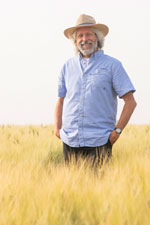Dr. H. Randy Kutcher (PhD)

Professor
Ministry of Agriculture Strategic Research Program (SRP) Chair in Cereal and Flax Crop Pathology

Professor
Ministry of Agriculture Strategic Research Program (SRP) Chair in Cereal and Flax Crop Pathology